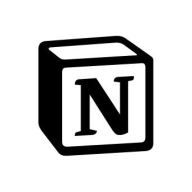

Zendesk and Notion compete in the realm of productivity and customer service tools. Zendesk appears to have an advantage in providing robust ticket management with integration capabilities, offering a more sophisticated solution for complex workflows.
Features: Zendesk offers seamless ticket management, integration capabilities with numerous applications, and extensive customization and automation options that cater to complex workflows. Notion distinguishes itself with flexibility in note-sharing, comprehensive database management, and user-friendly task management and collaboration features.
Room for Improvement: Zendesk users have issues with ticket merging, system speed during high customization, and an outdated knowledge base search. There are concerns about the admin console's user-friendliness. Notion needs interface improvements, enhanced automation features, and better connectivity, with comments on occasionally slow page loads and limited color options.
Ease of Deployment and Customer Service: Zendesk supports various cloud platforms, providing deployment flexibility, but sometimes heavily relies on documentation for support, causing user frustration. Notion's use of public cloud and on-premises models suggests a need for better-optimized support channels according to customer feedback.
Pricing and ROI: Zendesk's pricing is considered high, especially for larger teams with premium needs, yet it is seen as delivering significant ROI through enhanced customer interaction and workload reduction. Notion's competitive pricing includes a generous free tier, appealing to users needing flexible task management and having straightforward pricing, although team features in paid plans may increase costs.


Notion is an all-in-one workspace that enables teams to collaborate, organize, and manage their work effectively. Its primary use case is to streamline project management, knowledge sharing, and task tracking. With its versatile functionality, Notion allows users to create and customize databases, wikis, and documents, making it a powerful tool for organizing information.
The most valuable functionality of Notion lies in its flexibility and ease of use. Users can create and link various types of content, such as text, images, files, and even embed external resources. This enables teams to centralize their work and collaborate seamlessly, eliminating the need for multiple tools. Notion's drag-and-drop interface and intuitive editing features make it accessible to users of all technical backgrounds.
Notion helps organizations by fostering transparency, improving productivity, and enhancing knowledge management. By providing a centralized platform for collaboration, teams can easily access and contribute to shared projects, reducing communication gaps and ensuring everyone is on the same page.Zendesk Support is intuitive, and it's built with support agents in mind. Everything they need lives in a single, dynamic help desk interface so it's easy to be productive and manage customer interactions.
We monitor all Knowledge Management Software reviews to prevent fraudulent reviews and keep review quality high. We do not post reviews by company employees or direct competitors. We validate each review for authenticity via cross-reference with LinkedIn, and personal follow-up with the reviewer when necessary.